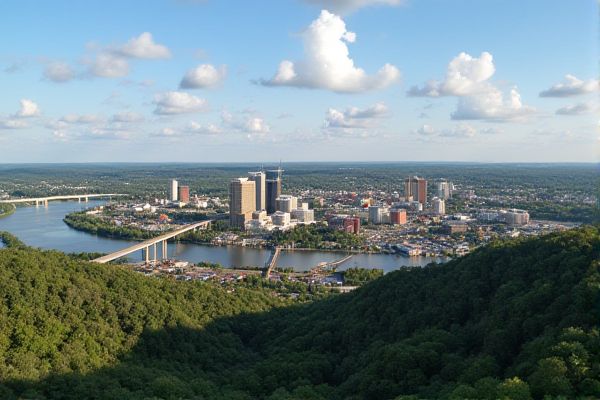
Moving to Maryland checklist: Research Maryland neighborhoods. Secure housing arrangements. Plan your budget. Update driver's license. Register your vehicle. Transfer utilities. Explore job market. Know local taxes. Find healthcare providers. Discover local attractions.
Research Maryland neighborhoods.
The resource offers comprehensive profiles of Baltimore neighborhoods, covering an array of information such as location, history, and maps. It incorporates statistical data and draws on resources from esteemed organizations, including the Baltimore Neighborhood Indicators Alliance and the Baltimore City Department of Planning. To explore more about these dynamic neighborhoods, visit the Baltimore Neighborhoods Guide for an enriching experience.
Secure housing arrangements.
To secure housing arrangements in Maryland, consider expenses such as rental security deposits, notify your landlord with adequate notice, and arrange for utility connections at your new home. Additionally, you can utilize resources like the Maryland Housing Search database and contact 211 Maryland for assistance with affordable housing, rent payments, and eviction prevention.
Plan your budget.
To plan your budget for Moving to Maryland, it is essential to estimate comprehensive moving costs, including expenses like hiring movers, purchasing packing supplies, and considering potential insurance. Additionally, it's important to factor in housing expenses, as the cost of living in Maryland is approximately 10% higher than the national average. Currently, the average house prices are around $350,000, and the monthly rent for a two-bedroom apartment is about $1,500. For more detailed information and a useful checklist, you may visit the Cultural Daily website.
Update driver's license.
When moving to Maryland, it is essential to apply for a driver's license within 60 days of arrival. This process requires providing proof of identity, citizenship or legal presence, and Maryland residency. Additionally, an eye examination and potentially a written driver's license exam are necessary. For comprehensive guidance, refer to the Maryland Moving Checklist which outlines all the important steps to ensure a smooth transition.
Register your vehicle.
To register your vehicle in Maryland, you must apply within 60 days of moving, providing proof of ownership, insurance, and a Maryland Safety Inspection Certificate. Additionally, you must pay the excise titling tax and other fees, with the option to apply in person or by mail to the Maryland Vehicle Administration. This guide provides necessary information for a smooth registration process.
Transfer utilities.
To transfer utilities in Maryland, it's important to begin the process 2-4 weeks prior to your move. Start by listing your current utilities and researching new providers to find the best options in your new area. When contacting utility companies, provide at least 72 hours' notice and prepare the necessary documents to streamline the process. A crucial resource for understanding these requirements is the Updater, which outlines the documents you'll need to start, stop, or transfer utility services efficiently. Make sure to prioritize setting up essential services such as water and electricity to ensure a seamless transition at your new home.
Explore job market.
Explore the Maryland State Online Employment Center to find job openings by filtering through options such as keyword, location, department, and job category. With access to current, ongoing, and contractual recruitments across various state departments and local health agencies, the Maryland State Online Employment Center provides a comprehensive platform for job seekers to find opportunities tailored to their preferences and qualifications.
Know local taxes.
In Maryland, understand that property taxes are determined by the assessed value of the property and include various countywide and special area taxes. Additionally, Maryland has a progressive income tax system with state and county tax rates. Residents must file a state income tax return if their gross income exceeds certain levels. To learn more about this system, visit the Montgomery County Government website for a comprehensive overview of taxes in the region.
Find healthcare providers.
To find healthcare providers in Maryland, use the Maryland Physicians Care (MPC) provider directory, which lists physicians, hospitals, and other healthcare providers available to you. You can also contact MPC Member Services for additional help.
Discover local attractions.
Uncover the historic allure of Annapolis and Anne Arundel County by exploring renowned sites such as the Maryland State House, United States Naval Academy, City Dock & Ego Alley, along with the majestic Chesapeake Bay area. This region uniquely combines historic landmarks, stunning waterfront vistas, and a variety of entertainment options. Meanwhile, Havre de Grace invites you to experience its picturesque scenery with trails, parks, museums, and vibrant amenities, positioned beautifully at the confluence of the Chesapeake Bay and the Susquehanna River. Maryland, as a whole, boasts a captivating mix of colonial history, notably in Annapolis, the storied roots of Babe Ruth in Baltimore, 18 scenic byways, engaging maritime museums, and welcoming beaches for families. Immerse yourself in Maryland and enjoy its rich history, lush landscapes, and cultural significance.
